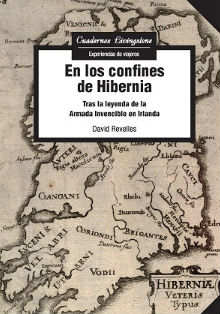Gonzalo Figar
The political impasse generated after the split electoral results does not seem to have an easy or fast solution. In these conditions, the Spanish people are waiting for some of the political leaders to take a step forward and, leaving aside their thirst for power, open a way that gives preference to the country’s interests.
In this situation, it seems that the most likely to take that step is Mariano Rajoy, because of diverse reasons. Firstly, although the People’s Party was the most voted party, it is evident that the management of the current President did not have the trust of the Spanish people. PP lost more than 60 seats in the last election. Secondly, even if Rajoy was invested for a second mandate, his position would be of extreme vulnerability and instability. Is it worth for Rajoy to do nothing in these circumstances or would it improve his profile taking a step backwards and being remembered as the President who avoided Spain’s bailout and sacrificed himself in favour of general interests?
At the moment, Rajoy does not have the support necessary to form a government. Facing a predictable alliance of the left, which would mean a clear defeat of the President and his exit of the political life using the back door, Rajoy could anticipate that scene and replace that humiliation by a voluntary resignation loaded with patriotism and nobleness. Finally, of the four leaders of the current majority parties, Rajoy is the one who meets the greatest personal conditions to have courage and forget about his ambitions, not only because he has already been President, but also because he seems a very sensible, mature and calm person… The other candidates do not stand out because of these virtues.
If Rajoy is brave enough to step aside, the following could be the solutions:
–PP proposes an alternative candidate to the Presidency, someone who generates less animosity and is, possibly, able to be invested and govern without an overall majority.
–A more creative solution would be for PP to abandon its intention of forming a government and to commit to abstention in the event of a possible investiture of Pedro Sánchez (or of Albert Rivera…). In this case, Sánchez would not be forced to come to an agreement with Podemos, because it could govern without an overall majority or reach an agreement with Ciudadanos.
[hr style=”single”]
If the PP leader took a step backwards to facilitate a Government, he would look like someone with sense of State
[hr style=”single”]
In both cases, Spaniards could finally leave that situation of chaos and, what is even more important, would prevent Podemos, a radical, anti-system and ideologically rancid party, from coming to power. Rajoy, as I have already mentioned, would renounce an instable second mandate in exchange of filling a gap in history as someone with sense of State.
Finally, PP would benefit in three different ways. First of all, it would be perceived as the country that put Spain’s interests before party ambitions. In the second place, it would give up the possibility of governing without an overall majority in a session that, by definition, will be unstable. By keeping a significant minority of blockage at the Congress and veto power at the Senate, PP would avoid the exhaustion that will surely beat the one in power while maintaining the ability, from Parliament, to influence actions carried out by the Government. Lastly, being in the opposition would give PP space enough to reorganize and regenerate itself.
That regeneration should take place in three different fronts: ideology, team and structure. PP must represent a liberal alternative to left-wing options again, an alternative that advocates a limited State, a small but efficient Administration, a free and competitive market, a vibrant civil society, a Welfare State up to date and Spain’s unquestionable unity.
In turn, it is time for the party to find replacements, not only as regards its generations, but also its leading profiles. Facing the lack of harmony between citizens and politicians, new faces help to regain lost trust. Encouraging a generational replacement and giving way to people not only from the party –or from the Administration – but from other fields is essential to win discontent citizens back.
To finish, PP must reorganize its structures. More voices claim a new political system, more transparent and less controlled by the parties, which cannot carry on with closed, pyramidal and hierarchic structures. This political change seems to be inevitable and will happen in the coming years. PP has the chance to be in charge or to be carried away by changes promoted by populists.
This article has been published by Red Floridablanca






